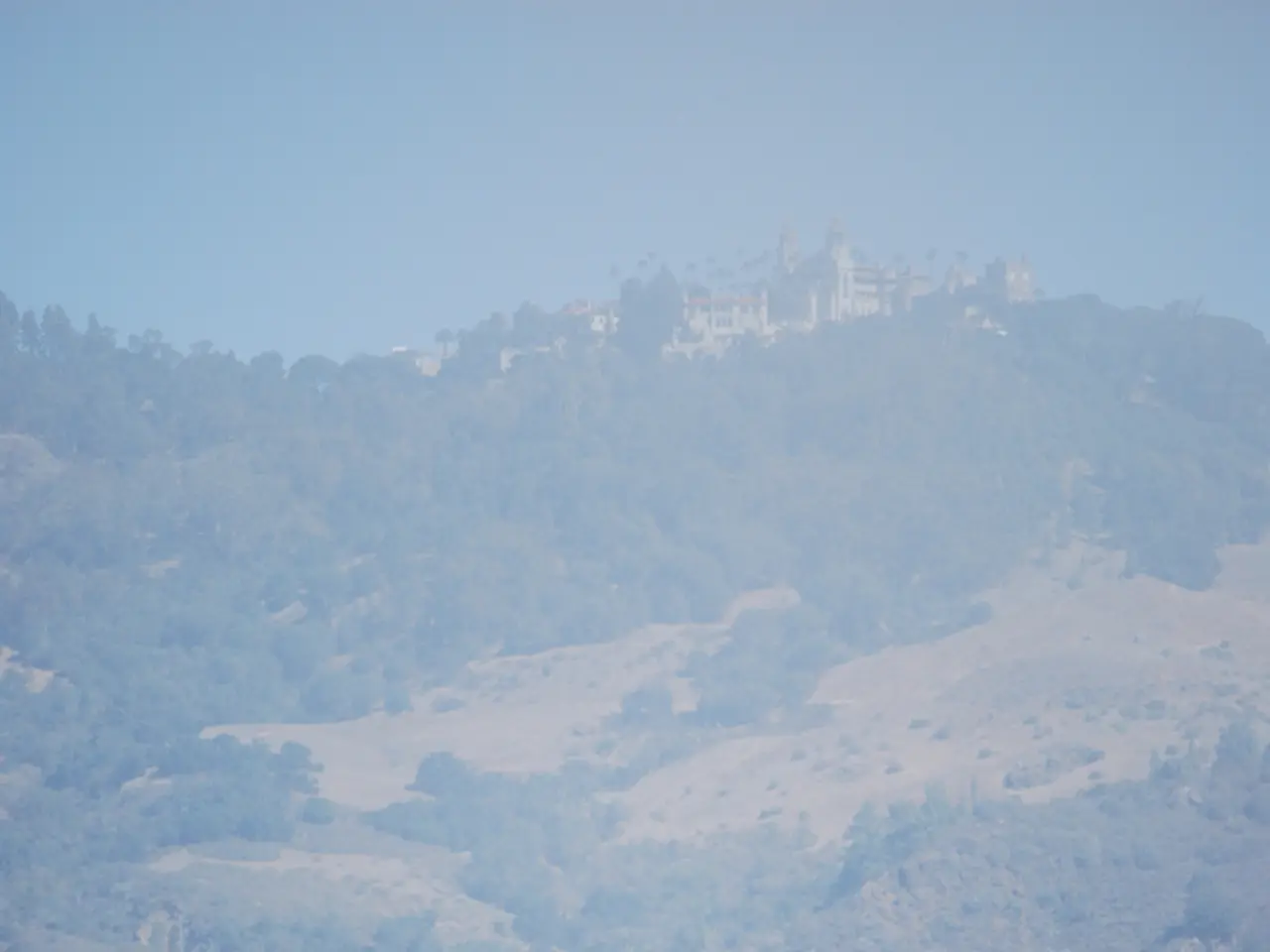Oldest and most extensive land trust in Germany, situated at Main and Landgestüt Marbach
Marbach Stud: A Timeless Haven for Equestrian Enthusiasts
Nestled in the heart of Germany, the Main and State Stud Marbach is a testament to centuries of horse breeding excellence. Established as a centre for workhorse breeding, this prestigious institution has evolved over time, becoming one of the country's most significant equine hubs.
With roots dating back several centuries, Marbach initially focused on breeding sturdy workhorses. However, its Arabian horse breeding program, which began in earnest in 1932, has since become a significant part of its history. This program played a crucial role in preserving and developing quality Arabian bloodlines in Germany.
Marbach's ties to broader German breeding traditions are evident, with the Black Forest Horse and other local breeds also finding a home at the stud. The farm has also played a role in modern breeding techniques, offering artificial insemination services to aid in breed preservation and development.
Today, Marbach remains a flagship state stud facility, maintaining a diverse breeding stock that includes Arabian horses alongside other breeds like the Black Forest Horse. The stud hosts stallions for breeding purposes and offers artificial insemination services, contributing to breed preservation and development.
The stud's horses have found success in competitive and sport horse programs, with some bred or auctioned at Marbach competing internationally. Visitors from Australia, among others, travel to Marbach to witness this equine prowess.
For those interested in horse breeding and equestrian culture, the stud is accessible to visitors and hosts several public events throughout the year. The most famous event is the Hengstparade, a grand annual stallion parade where visitors can see stallions from various breeds, including Arabians, perform and be presented for breeding and sport purposes. This event draws domestic and international visitors alike.
The surrounding region, including nearby Hechingen and the Black Forest area, offers cultural and natural attractions, making visits to Marbach part of a broader regional experience.
Marbach is not just a centre for modern breeding techniques; it also preserves traditional methods and horse breeds. The Arabian horse breeding program at Marbach is historically significant and continues to be a focus, maintaining bloodlines and contributing to German Arabian breeding excellence. The Hengstparade is a signature event, showcasing the quality and variety of stallions, including Arabians, and promoting public awareness of horse breeding traditions and performance.
The stud is also notable for integrating traditional and modern breeding methods, including artificial insemination and sport horse development. Visitors to the farm are often struck by the sight of a large, green pasture filled with white Arabian mares and their foals, a testament to the stud's commitment to preserving old horse breeds.
The Marbach stud farm is rich in history, with the skeleton of the royal horse Bairactar, used in breeding until 1838, on display in the museum. The horses at the stud are allowed to graze and play in the pasture every day, adding to the idyllic atmosphere. The stud farm also has a few descendants of horses born on the stud farm in the royal stable.
The first foals of the season were born in March and will soon be placed in a foal group in St. Johann or Offenhausen. The Hengstparade is a three-hour presentation of the stud farm's noble horses in their most beautiful form, with thousands of spectators. This year's guest country for the annual highlight event is the Netherlands and its black Friesians.
Despite Queen Elizabeth II's expressed desire to visit the Marbach stud farm, she ended up in Schiller-Marbach am Neckar instead. Nevertheless, the stud remains a must-visit destination for equestrian enthusiasts, offering a unique blend of history, tradition, and modernity in the realm of horse breeding.
The Marbach Stud, preserving both traditional and modern breeding techniques, has expanded its focus beyond equestrian excellence to embrace a lifestyle intertwined with home-and-garden, as visitors can explore the idyllic pasture and even attend the annual Hengstparade, showcasing a diverse range of horses, including Arabians.
With historical significance, the Marbach Stud not only breeds horses for sports but also offers a broader regional experience, as the surrounding area is rich with cultural and natural attractions, making it a desirable destination for those intrigued by horse breeding traditions as well as the charm of home-and-garden living.




